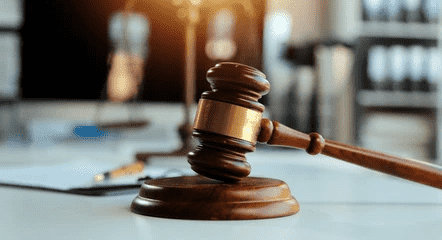By Casey O. Anderson, former State Senator
By ignoring the Independent Redistricting Commission requirements and selecting a congressional map personally submitted by liberal activist organizations, Judge Gibson has created a textbook case of judicial gerrymandering that violates Proposition 4, dilutes the votes of thousands of Utahns, and manufactures standing for an immediate counter-suit. Impacted citizens should act quickly.
In a stunning blow to democratic principles, Utah’s 3rd District Court Judge Dianna Gibson has unilaterally imposed a congressional redistricting map crafted by liberal activist groups, bypassing the voter-approved safeguards of Proposition 4. This late-night ruling, issued just before a midnight deadline on November 10, 2025, rejects the Republican-led Legislature’s proposal and instead greenlights “Map 1,” a design submitted directly by liberal activist organizations. These organizations, never part of the state’s independent redistricting process, have effectively hijacked the process to carve out a Democratic-safe district in Salt Lake County, diluting Republican voices and ensuring a partisan advantage for the left. This activist-driven gerrymander stands in direct defiance of the will of Utah voters, who voted in favor of Prop 4 to end such manipulations. Ironically, the overwhelming majority of Utah Counties rejected Prop 4, with almost the entire advantage coming from Salt Lake County.
To understand the outrage, one must revisit Utah’s Proposition 4, a citizen initiative passed in November 2018 with 50.34% approval. Dubbed the “Utah Independent Redistricting Commission Amendment,” Prop 4 was born from leftist frustration with partisan map-drawing after the 2010 census. The proposition’s core intent was straightforward: wrest control from politicians and entrust it to an impartial, balanced commission tasked with creating fair electoral boundaries. Under Prop 4, the commission comprises 7 members appointed through a transparent process. This body holds public hearings across the state, gathers input from everyday Utahns, and recommends maps that prioritize compact districts, respect communities of interest, and avoid favoring any party. Lawmakers can only adopt or amend these recommendations with a two-thirds supermajority vote, ensuring broad consensus and minimizing abuse.
Yet Judge Gibson’s selection of Map 1 shreds this framework. By handpicking a proposal from private activist groups, entities explicitly excluded from the independent commission, the court has inverted Prop 4’s logic. These organizations, with their progressive agendas, operated in secrecy, devoid of the commission’s mandated balance or statewide outreach. Map 1 packs Salt Lake County’s Democratic strongholds into a single district, guaranteeing an uncompetitive liberal seat while splintering conservative suburbs across others, a classic gerrymander tailored to flip Utah’s reliably red delegation. This isn’t neutral adjudication; it’s judicial activism, where a single unelected judge overrides both a citizen-backed commission and the citizen elected legislature without the required public meetings or stakeholder vetting. Prop 4 demanded deliberation, not dictation. Public forums where ranchers from St. George, tech workers from Provo, and families from Ogden could weigh in. Instead, Gibson’s fiat echoes the very partisan excesses voters rejected, empowering out-of-touch elites over everyday citizens.
The human cost is stark. Thousands of Utahns in the now gerrymandered District—once a Republican stronghold—now find their voices muffled. Farmers, small-business owners, and veterans who propelled conservative victories will see their representation auctioned to urban liberals. This isn’t abstract policy; it’s a theft of both representative government and democracy, forcing lifelong Republicans into a district engineered for Democratic dominance.
Utahns robbed of fair representation have a clear recourse: sue. Prop 4’s architects embedded ironclad enforcement mechanisms, allowing citizens to challenge maps that flout the commission’s recommendations. Residents in the affected districts should file immediate lawsuits in state court, arguing that Map 1 violates the proposition’s plain text: It wasn’t vetted by the independent body, emerged from unaccountable partisans, and skipped mandatory public processes. Precedents abound—federal courts have struck down similar end-runs—and with the 2026 midterms looming, urgency is paramount. Grassroots groups like the Utah Republican Party and fair-maps coalitions must rally, amassing affidavits from displaced voters to prove diluted votes and fractured communities.
This travesty demands accountability. Governor Spencer Cox and Attorney General Derek Brown should appeal to the Utah Supreme Court, exposing Gibson’s overreach. If unchecked, it sets a precedent: Judges as kingmakers, activists as cartographers, and voters as afterthoughts. Utah’s pioneer spirit, rooted in self-reliance and moral clarity, rejects such shadows. By fighting back through the courts, citizens can reclaim Prop 4’s promise, ensuring redistricting serves the people, not the powerful. The ballot box spoke in 2018; now, the courthouse must listen.




2 comments
Ron Wolter
The ballot box spoke in 2018. The state legislature decided to ignore Proposition 4 and a few years later adopted a partisan map.
Later, the Utah Supreme Court affirmed the voter’s rights to pass valid laws and ordered the legislature to draw a map that followed Proposition 4. The legislature again submitted a map that heavily favored one party.
In 2018, the majority of Utahns voted for fair maps. Last I heard most Utahns want their vote to count.
Marsha Bearnson
The only city in Utah that isn’t dominated by Republicans is Salt Lake City. Is there no room in this state for Democrats?
I’m for getting rid of the Electoral college across the country. Let every vote count.